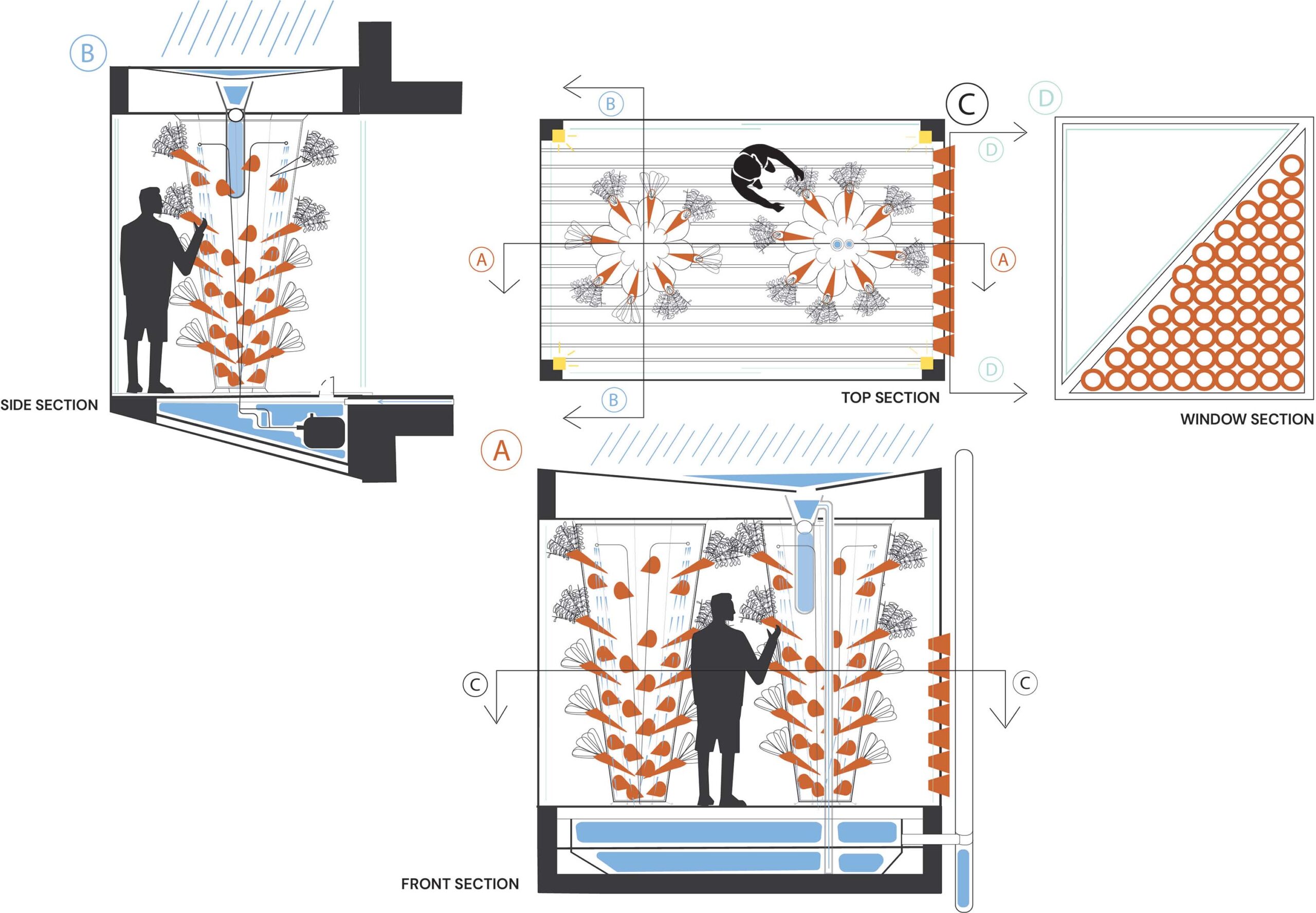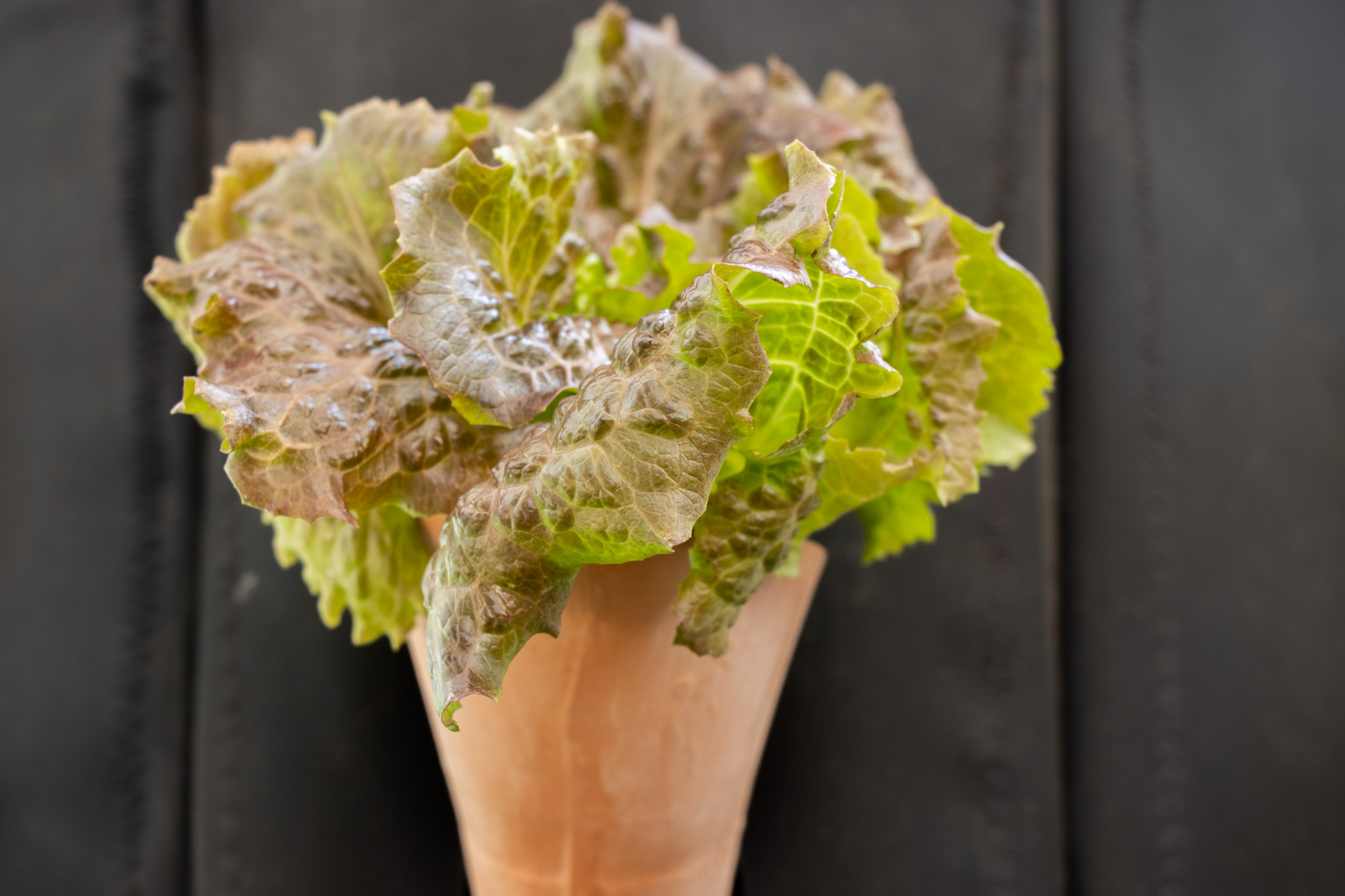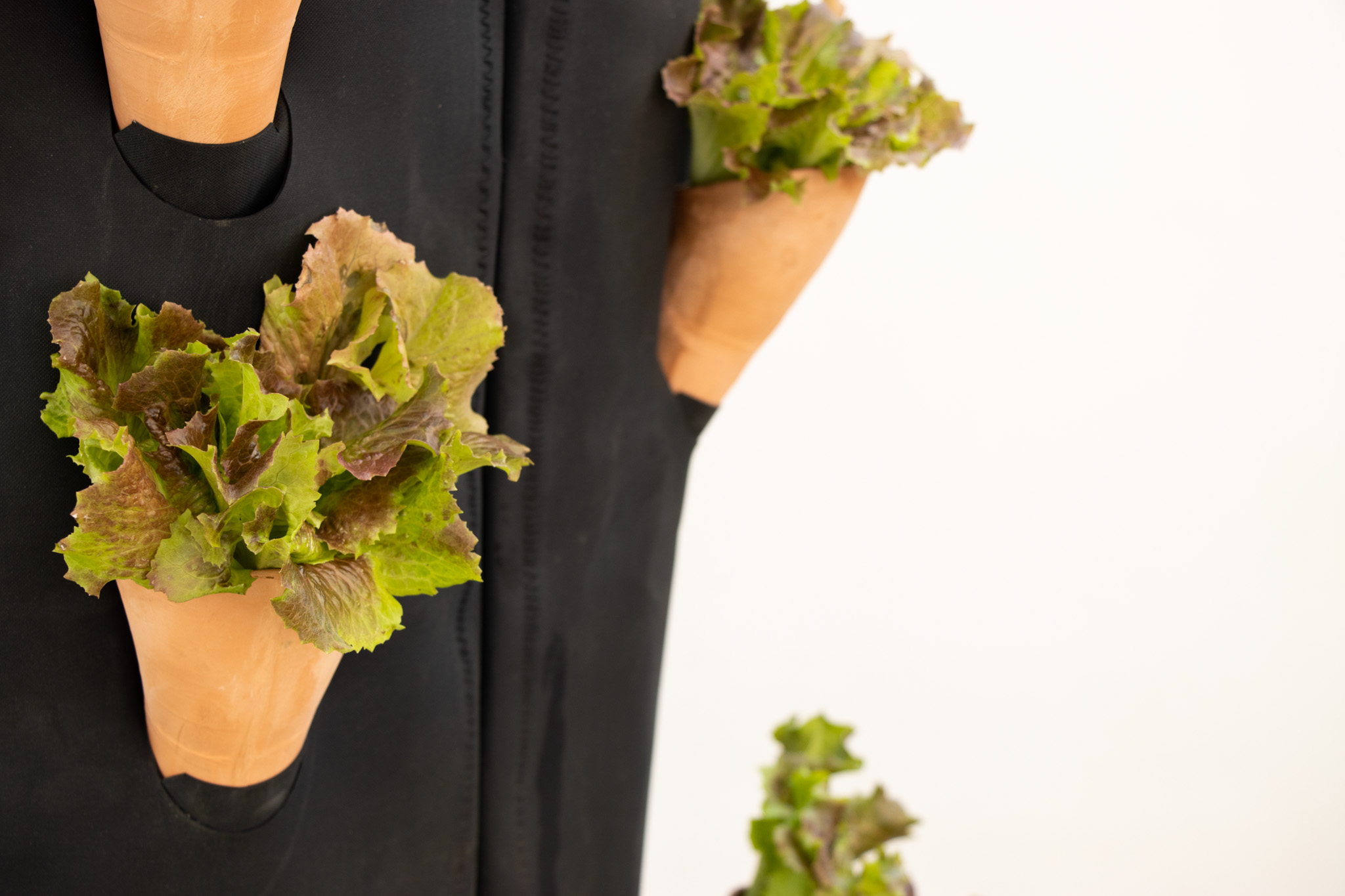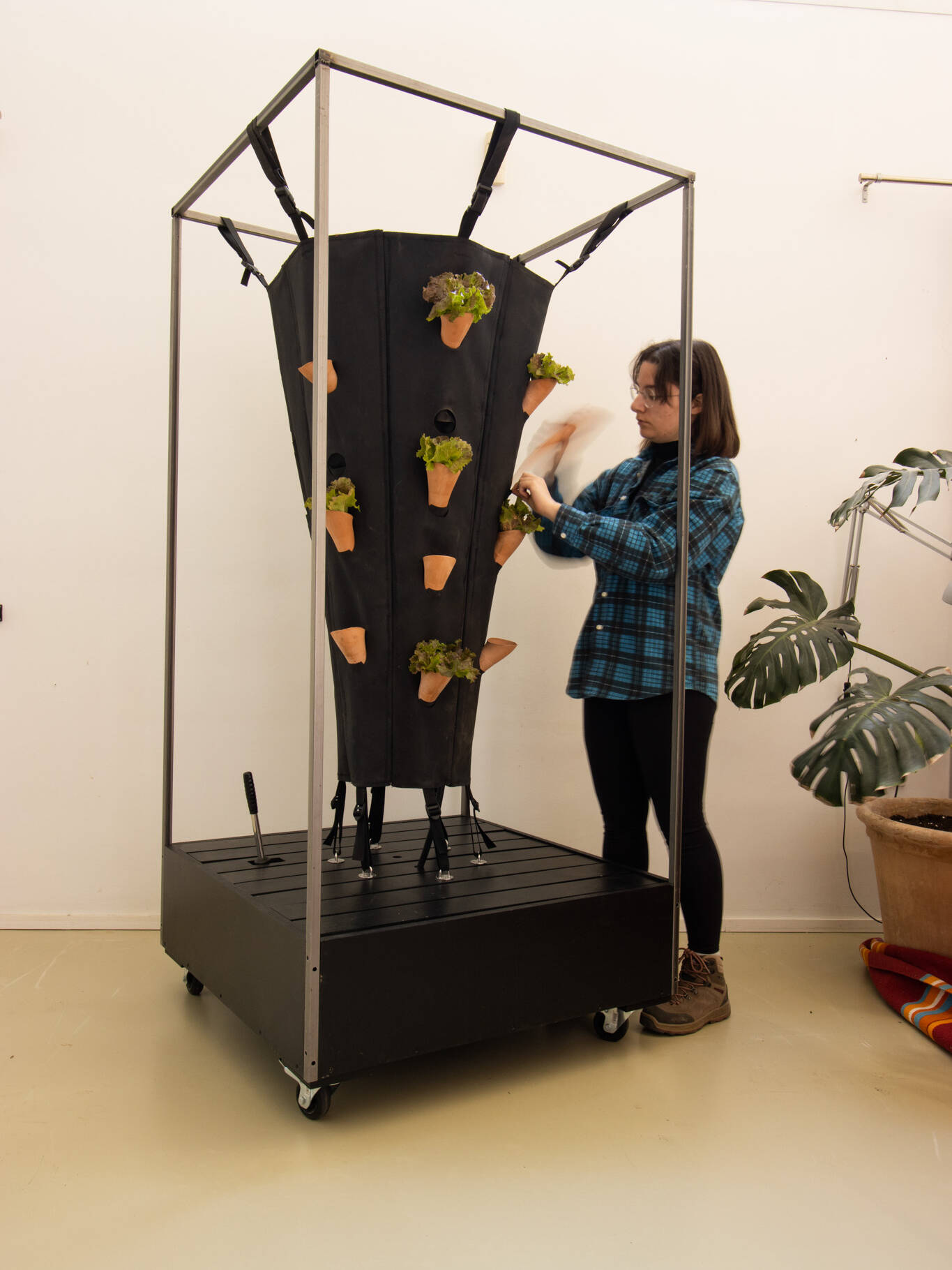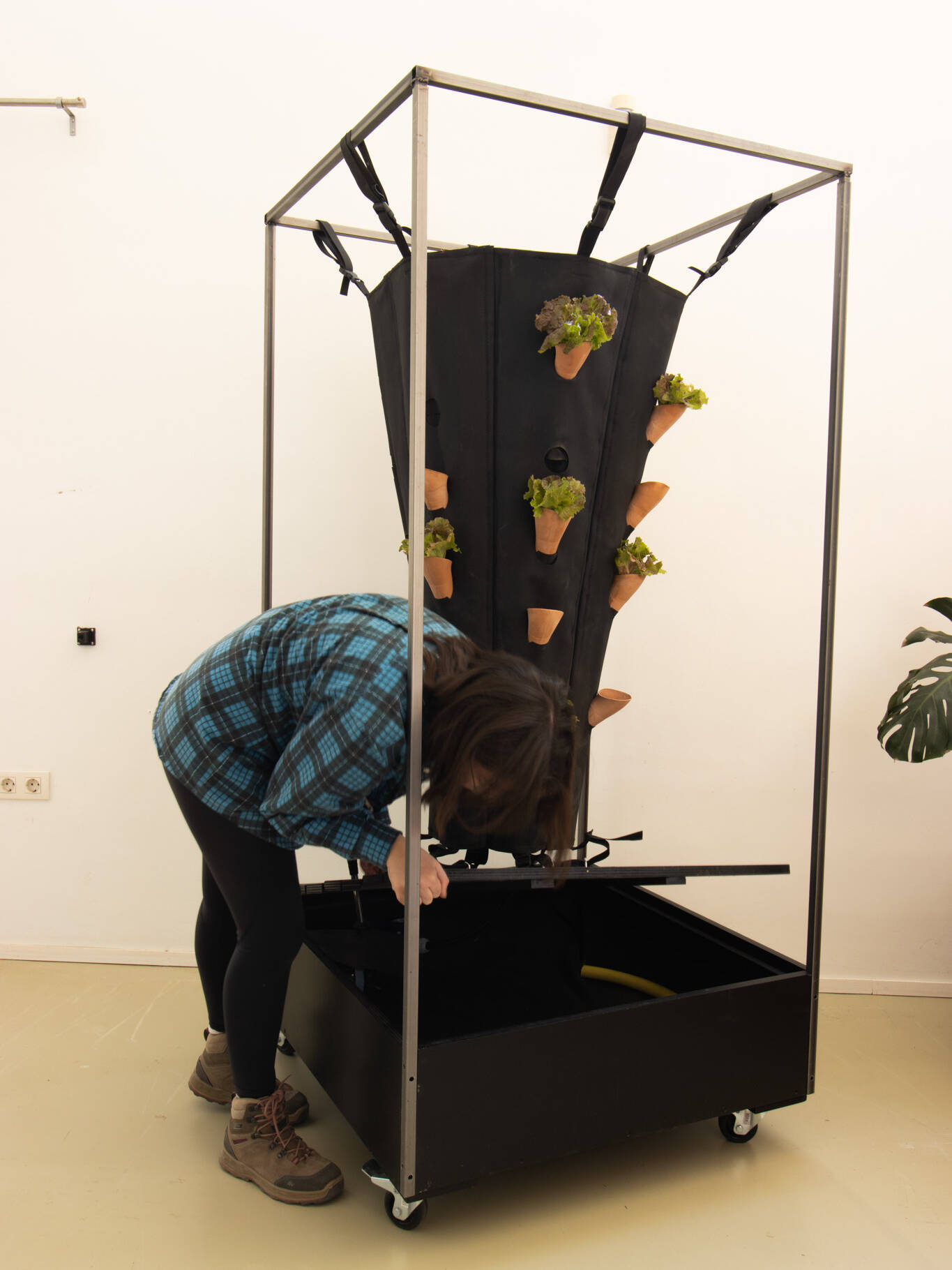The Urban GreenNest
Speculative design / Urbanism / Futuristic Design / Global challenges

What if we opted for a paradigm shift, decentralizing production and embracing a prosumer model where individuals are both consumers and producers, thereby fostering a more sustainable and resilient food ecosystem?
Year
2022
Expertise
User and Society
Business and Entrepreneurship
Technology and Realization
Creativity and Aesthetics
Institution
Design Academy Eindhoven
Collaboration
MGAARQTOS
Farm-Pod
The urban population is experiencing a rapid surge in growth, with projections indicating that by 2050, over two-thirds of the global populace will reside in urban areas. This escalating urbanization is poised to exert an immense strain on agricultural resources, posing a formidable challenge to maintaining the health, sustainability, and efficiency of the agriculture industry, which is essential for feeding the growing population.
In light of these circumstances, instead of persisting in the trend of externalizing the escalating food demands of cities, why not collaborate to redress this imbalance? What if we opted for a paradigm shift, decentralizing production and embracing a prosumer model where individuals are both consumers and producers, thereby fostering a more sustainable and resilient food ecosystem?
To address these inquiries, I suggest a speculative scenario built upon the escalating demand from cities for fresh and wholesome products: decentralizing farming to empower urban individuals to cultivate their own vegetables within domestic urban spaces. Envisioning this future, the green domestic infrastructure becomes an integral aspect of housing, governed by national regulations.
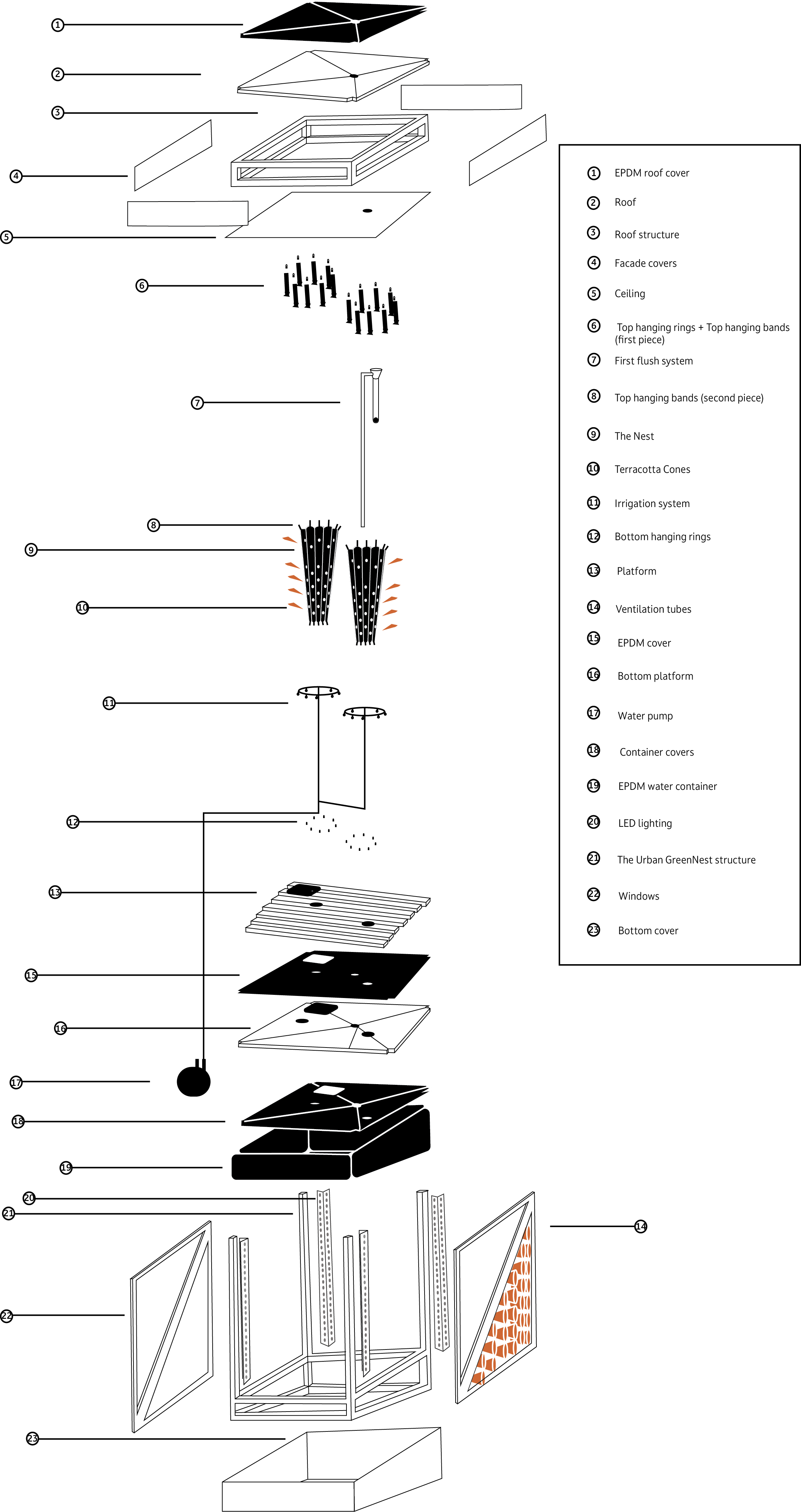
In this context, The Urban GreenNest emerges as a comprehensive system tailored for growing vegetables within apartments. Utilizing rainwater, light, and nutrients, the proposal introduces a green, low-tech controlled frame designed to hang from residential buildings. The GreenNest components within the proposal can be customized to meet the unique needs of each family, while simultaneously fostering social collaboration through the exchange of surplus produce among neighbors.
In the course of my research, I had the privilege of collaborating with experts in Urbanism, Architecture, and urban farming practices. Key contributors to the development of this concept were Farm-Pod and Studio MGAARQTOS.
In summary, The Urban GreenNest represents an urban concept delving into the exploration of how we can advance the notion of domestic farming within buildings to address the challenges of future overpopulated cities.
